Wildcats Rising
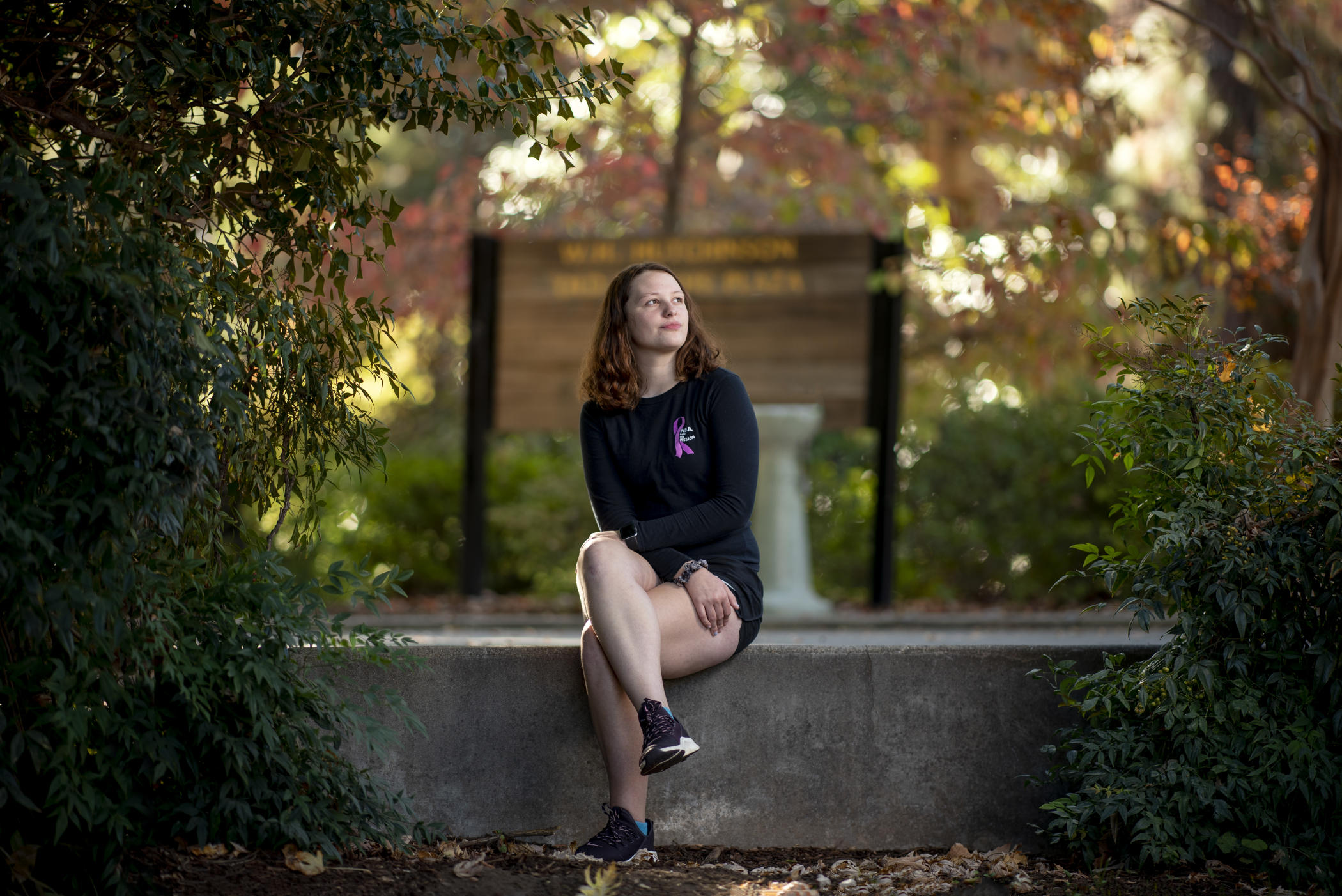
Student Zada Williams is photographed on campus on Wednesday, October 23, 2019 in Chico, Calif. (Jessica Bartlett/University Photographer/CSU Chico)
Editor’s Note: On the one-year anniversary of the Camp Fire, we are honoring its impact on our community with a series of stories embracing the themes of remembrance, recovery, and resurgence.
As semesters pass, life continues and rebuilding begins. For many, the Camp Fire is but a moment in history.
For those who lived it—who just barely escaped the flames and still struggle with day-to-day tasks—their lives remain forever changed. One year later, as survivors search for normalcy, it’s easy to feel forgotten.
“I think a lot of people have this thought that, ‘Oh, it’s over, and you have somewhere to live so you don’t have any problems anymore,’” said junior Zada Evans. “Even though my situation is much better than others, I still need that support. … It’s going to take a long time, and I haven’t recovered at all.”
After months of living in donated trailers, the exercise physiology major is trying return her grades to pre-fire levels and works two jobs to support her parents and two siblings while they settle into a new house.
Computer science major Ethan Robinson finds refuge studying in the same window-filled corner of the library that became his space during long days on campus without transportation, 90 minutes from temporary housing near Redding.
Liberal studies major Tamara Bradford spends her evenings co-studying at the kitchen table with her 13-year-old son, freshly tattooed pine trees just visible on her forearm as they both complete their homework.
“For me to be able to get my degree and show my son that I never gave up, that is why I am going to keep doing this,” Bradford said. “I’m not going to let that fire tell me what I can and can’t do.”
Along the daunting road of recovery, education remains their primary goal. Evans, Robinson, and Bradford are three of the 58 students who received notification last month they were awarded a Strada Wildcats Rise Scholarship. It was both a relief and an affirmation of support in a time when many felt they were struggling alone.
“We are still dealing with it every day, and we are so thankful,” Bradford said. “Other communities might have moved on, but this one hasn’t. And that’s been like a big hug.”
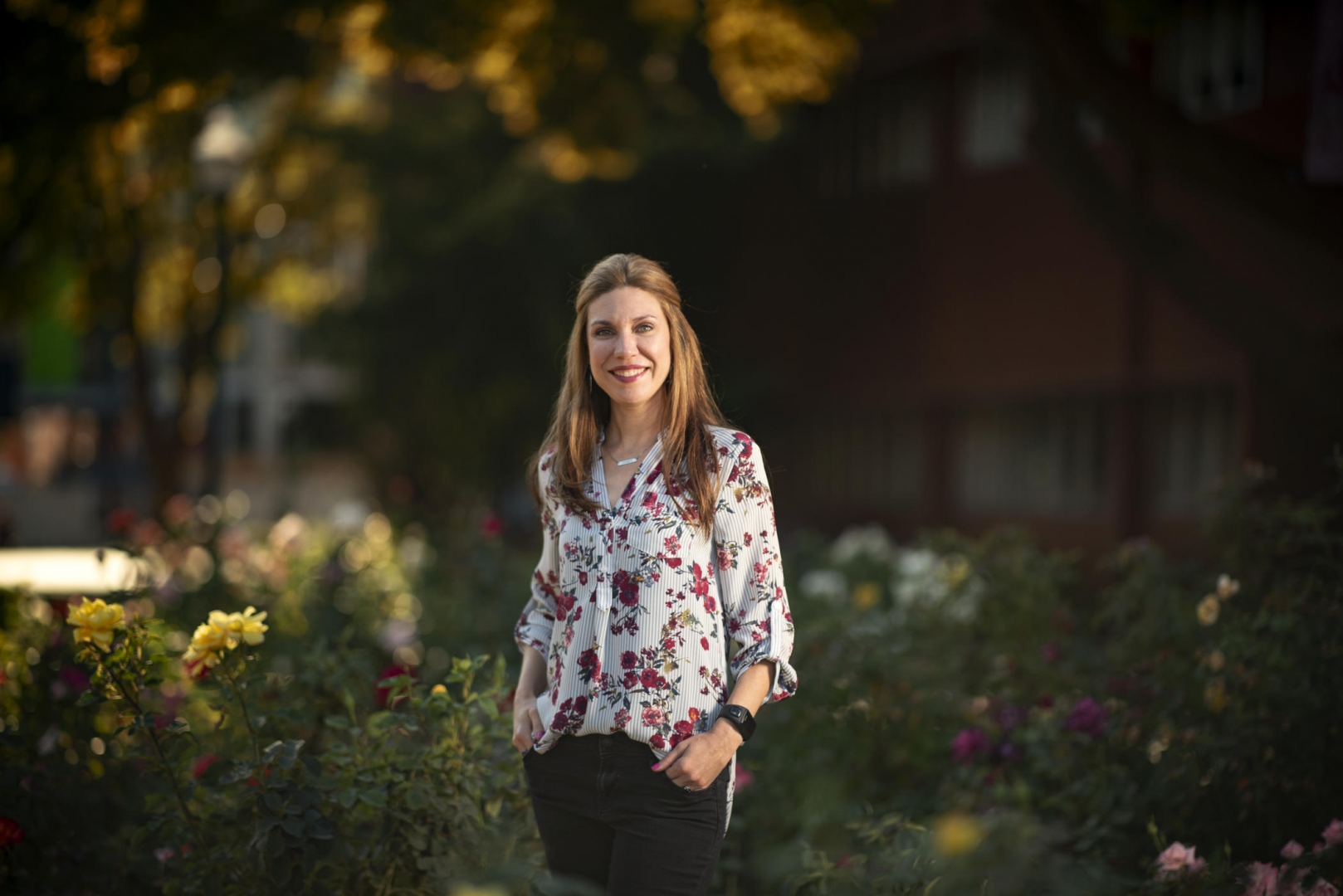
The support has been there from the start, Evans said. In the days and weeks right after the fire, the University reached out with offers of housing in the residence halls, faculty granted leniency with assignments, and a Wildcats Rise Fire Recovery Fund emergency grant helped her with immediate needs.
On November 8, 2018, Evans and her sister took the early bus to Chico from Paradise to ensure they were on time for their 8 a.m. class. She doesn’t remember attending classes that day, but she can still feel the anxiety of waiting for her parents and little brother to make it safely down the hill.
“I don’t really talk about it that much because I don’t express my emotions,” she said, tears beginning to fall. “But it’s just crazy to think that one day you might not see your family members ever again. That was probably the worst part.”
Her childhood neighborhood was ablaze by the time her parents left their house for the last time with a few treasured belongings, their four cats, four dogs, and four chickens. For a few days, they stayed with two dozen other people in her uncle’s three-bedroom home in Chico. After bouncing between homes of family friends, they moved into two trailers gifted to them by a stranger.
With only her backpack and the clothes she was wearing that fateful morning, Evans spent her Wildcats Rise Fire Recovery Fund emergency grant on essentials for her and her family, including food, blankets, and other critical items.
That was the University’s intention when it established the fund immediately after the fire. It ultimately raised $816,131 from 5,288 donors to support students, faculty, and staff after the Camp Fire, and was dispersed to 534 Wildcats who were directly affected.
A $100,000 gift from the Strada Education Network enabled an additional round of scholarships. After the Camp Fire gutted Evans’ senses of security and stability, she feels compelled to hold on to the funds for an emergency need, whether unexpected class expenses or repairs for her laptop.
“It’s definitely a good feeling to have that support and not worry that if something happens, how am I going to pay for it,” she said.
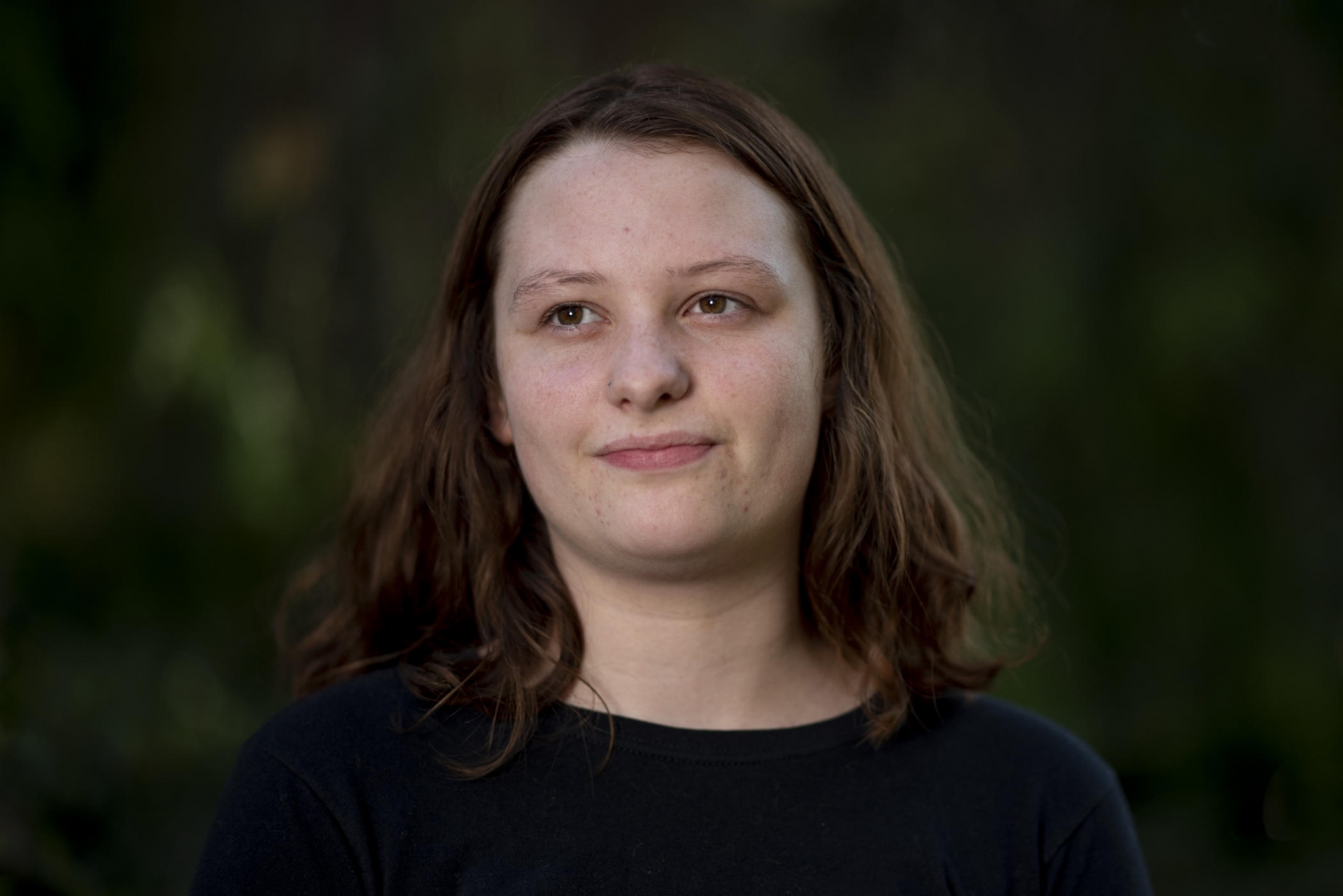
Bradford was awed by the unexpected gift.
“We are getting that support we need to be able to continue to keep moving forward and not get lost in the aftermath,” she said. “That helped me—to say, ‘Somebody out there is remembering me out of the thousands who were affected.’”
On the day of the fire, she dropped off her son at Paradise Junior High at 7:30 a.m. and headed to work at Butte County Child Support Services, listening on the radio about a blaze burning in Concow. At 8:01 a.m., her son called and told her school was closing. As ash began to rain from the pitch-black sky, she raced back to Paradise and picked him up with a few friends who couldn’t reach their parents.
With sirens and explosions in the background, they grabbed their six pets from home and fled. Their entire neighborhood, an estimated 70 homes, was leveled.
“Everything I ever touched is completely gone,” Bradford said. “But I am still here and still healthy and have all my animals and my family, and everyone is safe so I just keep that in mind. I have things in my life to be thankful for, and I have goals I set for myself.”
In the months that followed, her family moved at least six times, sleeping some nights on sofas. Working toward her online degree became her constant. This is Bradford’s second chance, having taken time off to start a family, and she’s determined not to let anything—even unprecedented devastation—get in her way.
“I’m going to think about what my future holds and how I can get to that future,” she said.
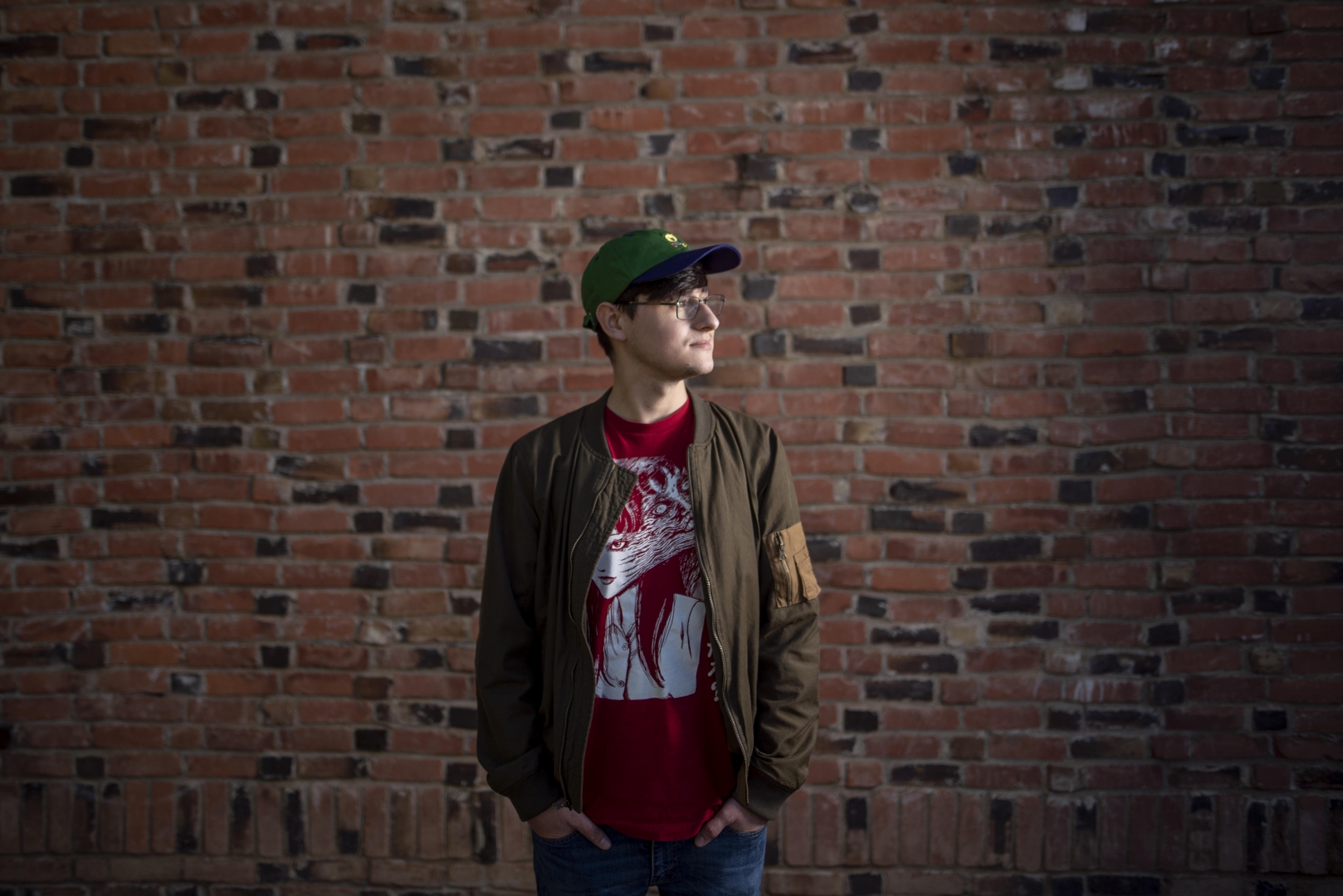
Robinson feels the same way, especially after receiving the emergency grant and this recent scholarship.
“I feel a sense of owing it back to the community that is supporting me,” he said.
He’s back living in Magalia with his family—their fourth home since the fire—but has vivid memories of evacuating that fateful day, watching the flames lick the hill in front of him and retardant dropping on his car before he turned around to get his dad and dog.
Other than a few paintings and some camping gear, “we lost everything,” Robinson said. “The weeks after the fire … it was a lot of figuring out what we were going to do. Whether I was going to continue college, whether my mom was going to continue working at Chico State.”
His family soon moved to an RV in Red Bluff and then to a place near Cottonwood. He’d wake each morning at 5 a.m. so his brother could get to Butte College and his mom to her job in the Financial Aid and Scholarship Office at Chico State. He’d stay on campus until 5 p.m. every day, and then they’d make the long drive home together.
“I did well in school. I was taking some incredibly hard classes and got B’s in all of them,” he said. “I think I did good in school because I was here studying in the library from 8 to 5.”
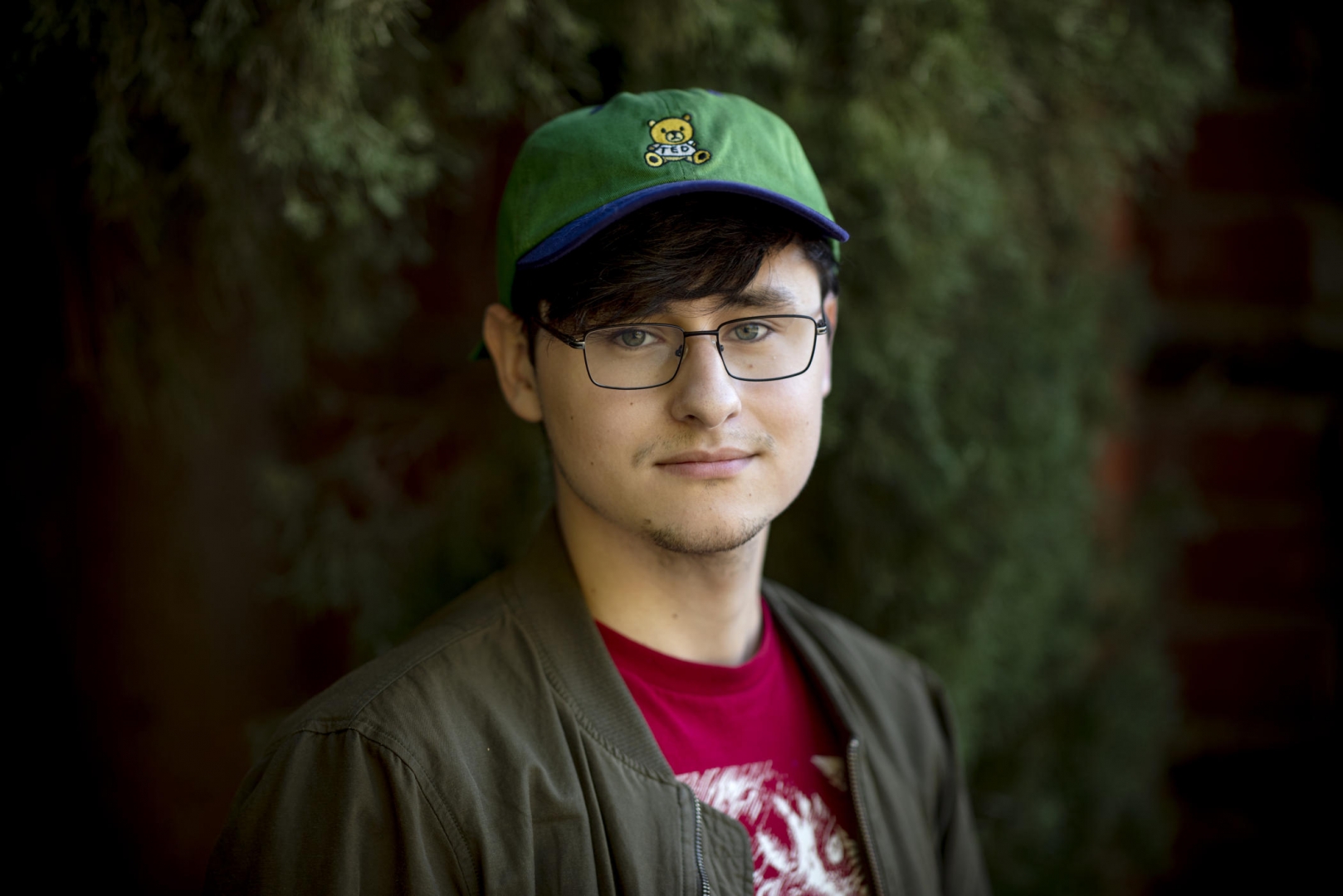
His emergency grant enabled him to replace his textbooks that burned and eventually fix an old car so he could stay late on campus for group projects or hang out with friends like before everything changed. Two years from graduating, he said the scholarship will most likely go toward supplies he needs to build a supercomputer for a class project.
“It’s like all of these people I don’t even know are out there trying to help me out, trying to help other people out that have been affected by the fire,” Robinson said. “It gives a sense of community. Like we are all in this together. I’m kind of speechless when it comes to talking about it.”
This summer, Evans’ family moved into a rental house, and she continues to create small comforts. She salvaged her rock collection from the ashes of their Paradise home and replaced some of the posters that used to hang in her bedroom.
“It’s just been one thing after another,” she said. “Now is the most stable we have been, living-wise and money-wise.”
She’s also feeling more confident in her academics. Her grades suffered in the weeks after the fire, her 4.0 GPA plummeting as she failed one class and earned a C in another.
“I hate to cry over grades but it sucks so bad because I try so hard for school,” she said. “I was still going every day, but there wasn’t much I could do because I had so much on my mind and so much I had to do, I just couldn’t focus.”
And yet, campus remained a refuge.
“School was one of the only schedules I had that was the same,” she said. “It was the only real thing I had from before the fire so that’s why I was still going. I had all of my friends here and I had certain professors that I really enjoyed having in my life.”
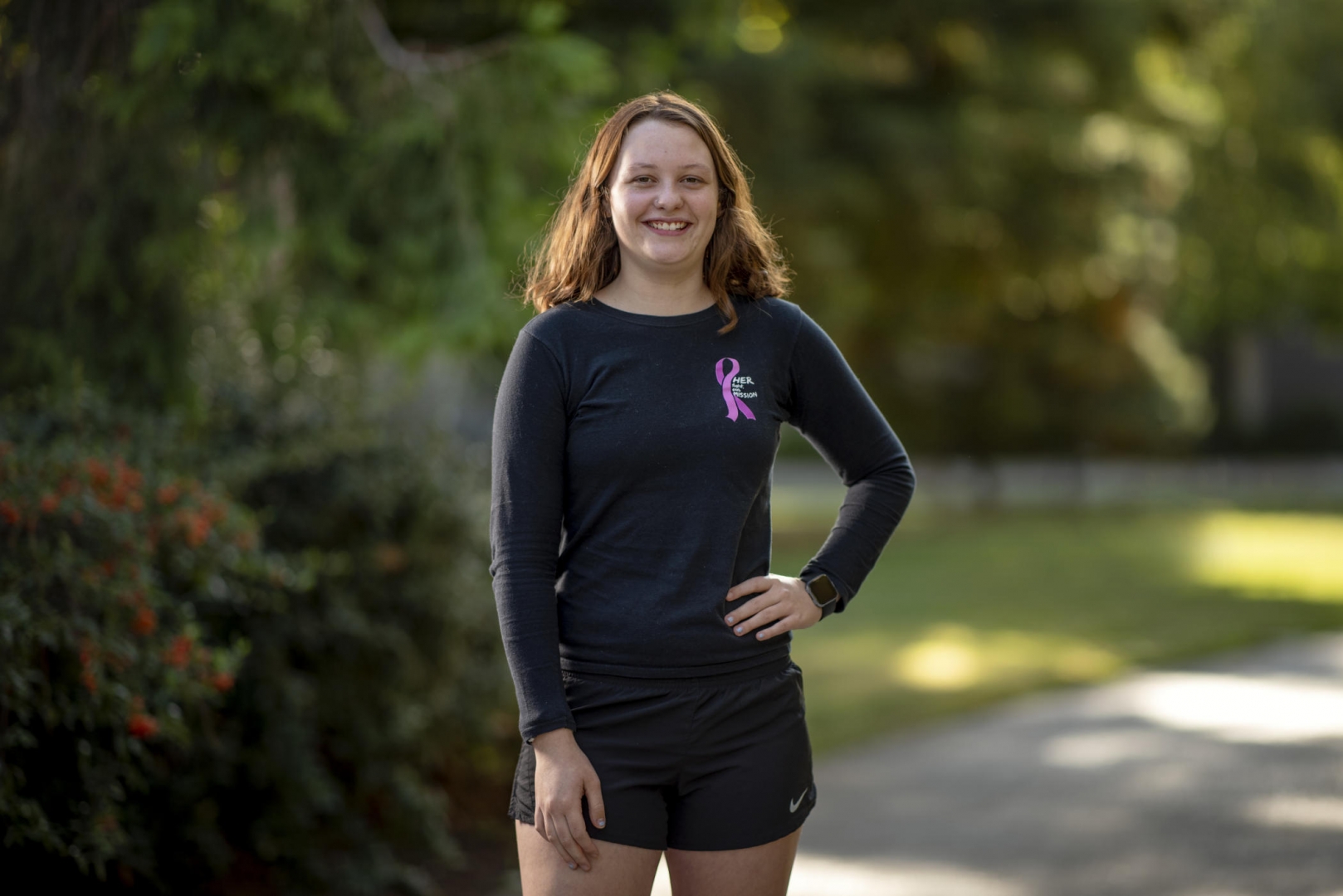
She gave herself the grace to take a lighter course load and remains driven to bring her grades back up. A year from now, she plans to be applying to graduate school and working toward her dream of becoming a physical therapist, and she wants to be the best candidate she can be.
Evans wishes she could tell every donor thank-you.
“It is so much appreciated. You can’t even imagine how much this is going to help so many different students, especially those who are just depending on these resources to live our lives and not have this stress every single day,” she said. “It’s just a good thing to know people have such big hearts and care so much.”
It’s a pretty incredible feeling, Bradford agrees, to be supported by people who did not experience the fire or such unimaginable loss. Her emergency grant went toward tuition and books, but it and the scholarship have been as much an emotional bolster as a financial one.
“There are lot of us who are able to hold hands and share our stories, and we understand one another because we know what we went through that day,” she said.
“But knowing we are in a community that may not have walked in our shoes and supports us in the way that they do makes it easier for us to step outside and feel safe and secure. It helps me to keep going.”
She, her husband, and son are finally living in an apartment of their own and have been reunited with five of their six pets. Yet, there are daily reminders of what they have lost.
“Every so often you have a moment where you go to turn on a light switch and it’s not there, or you go to put on a sweater and it’s not there anymore, or my son will try to find a Lego set and it’s gone,” she said.
When a professor last semester assigned a class project to create something using artwork from a child in their lives, she broke down, telling her she couldn’t do it emotionally or logistically—every preschool handprint and early sketch of her son had been reduced to ash.
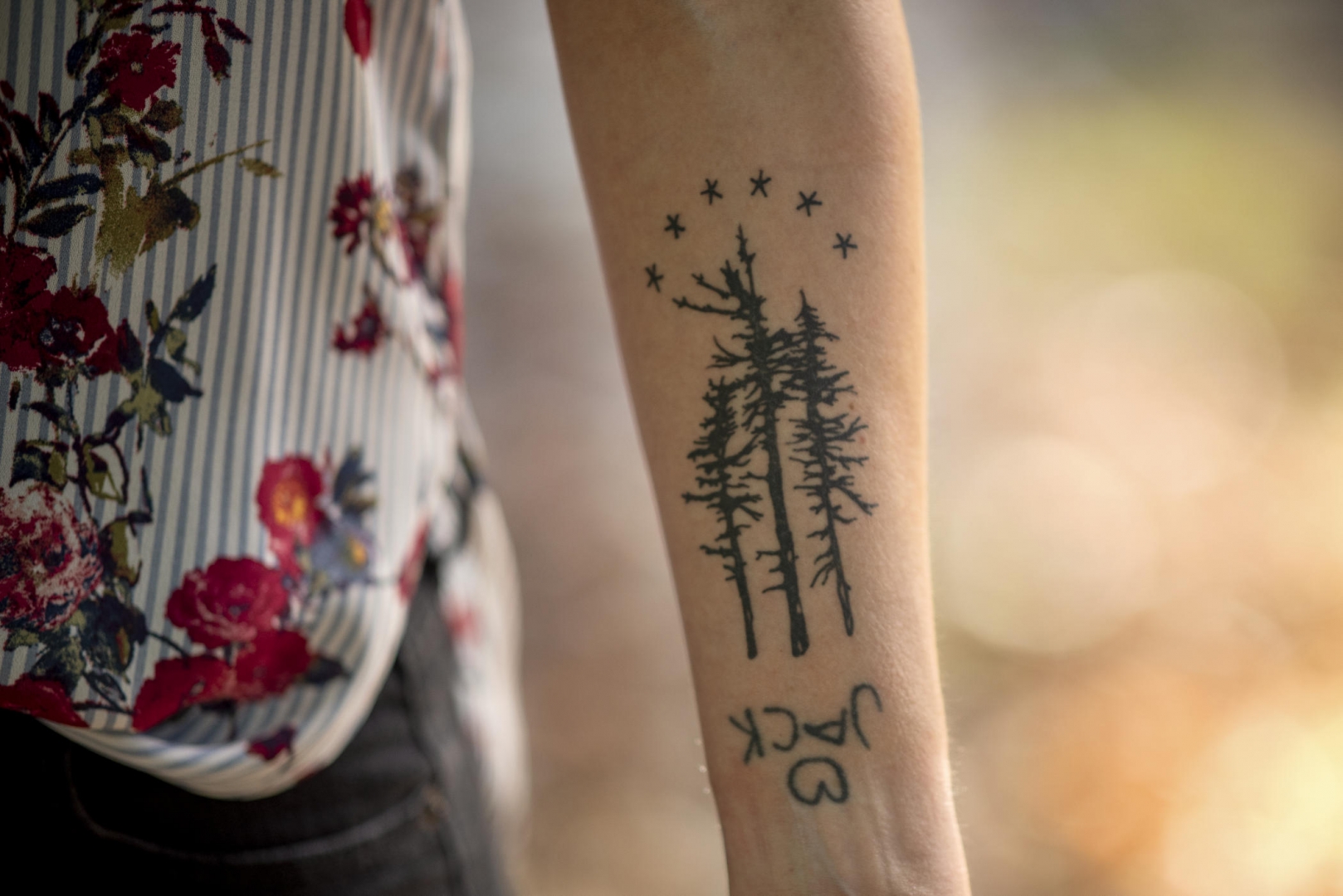
Now, Bradford is starting to see hope in place of devastation, as she drives her son to school at Paradise High each day. New businesses are opening, rubble is disappearing, and their own lot was recently cleared. She just applied for graduation, and a year from now she hopes to be in the credential program.
“That fire isn’t going to define us,” she said. “We are proving to ourselves that we are resilient. I am not moving on from what happened. I am moving forward.”


